Democrats work to keep protests from disrupting Chicago convention, with concerns over parallels to 1968
In 1968, violence at the Democratic National Convention in Chicago, with hundreds of protesters arrested in a police crackdown, upended the party's gathering and soured public opinion in the final months before the presidential election.
Americans had witnessed it all on their TV screens.
Now, more than 50 years later, as college campuses across the United States have erupted into protests over the Israel-Hamas war, some experts say history could repeat itself at this year's DNC convention -- also in Chicago.
MORE: Authorities plan for threats to Republican, Democratic presidential conventions
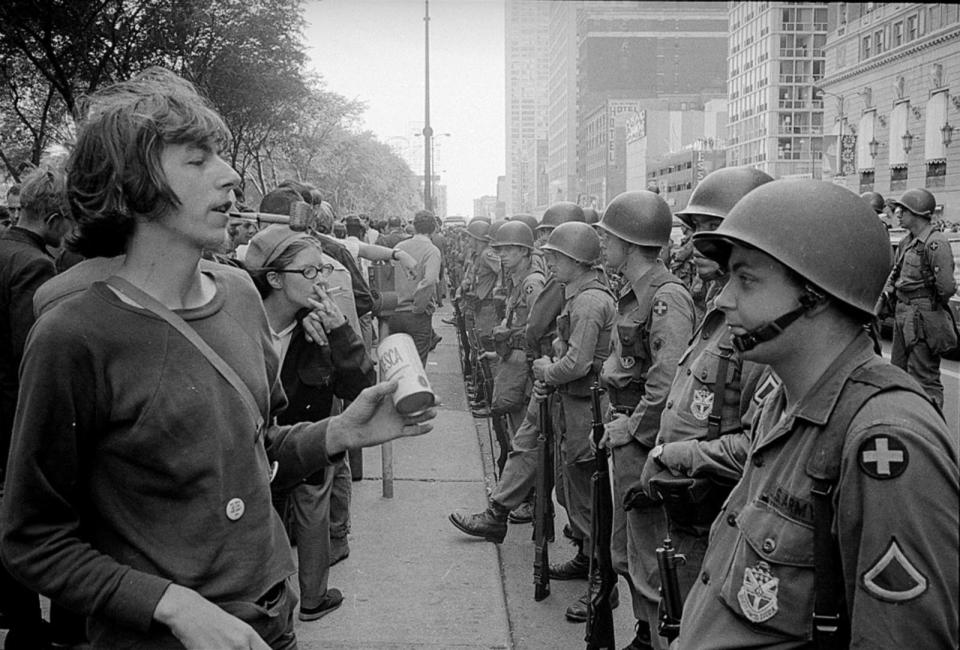
While the 1968 protests were against the Vietnam War, activists today are blaming President Joe Biden for his support of Israel's military operations in Gaza -- and some have expressed intentions to disrupt the party's plan to nominate him this summer for a second term.
Back then, opposition to the Vietnam War had gotten so intense that then-President Lyndon B. Johnson withdrew from being considered as the Democrats' nominee, throwing the party into political turmoil.
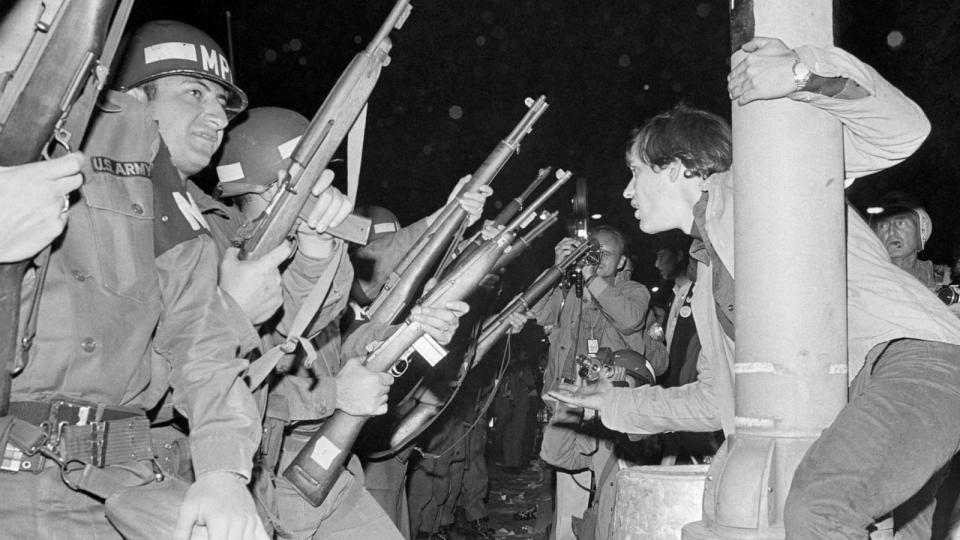
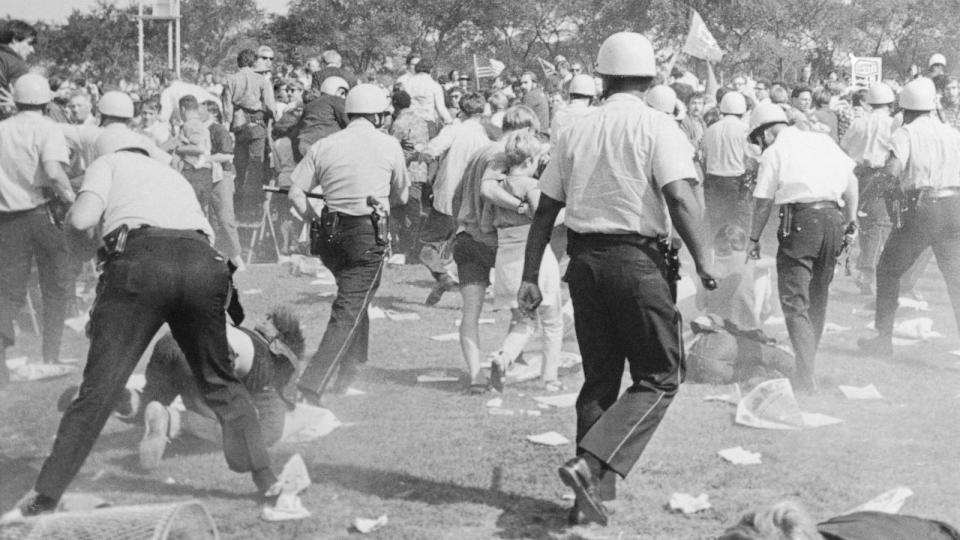
In 2024, unrest over another war could mean a similar chaotic scene that the party badly wants to avoid as it tries to showcase Biden to voters.
??"We have been making comparisons to 1968, of course, because, you know, it was a very contentious convention," said Hatem Abudayyeh, the national chair of March on DNC, the group leading the protest effort this summer.
More than 70 organizations attended a daylong conference last month to plan protests leading up to the DNC, Abudayyeh said, with close to 200 organizations and thousand of protesters expected to join in by August.
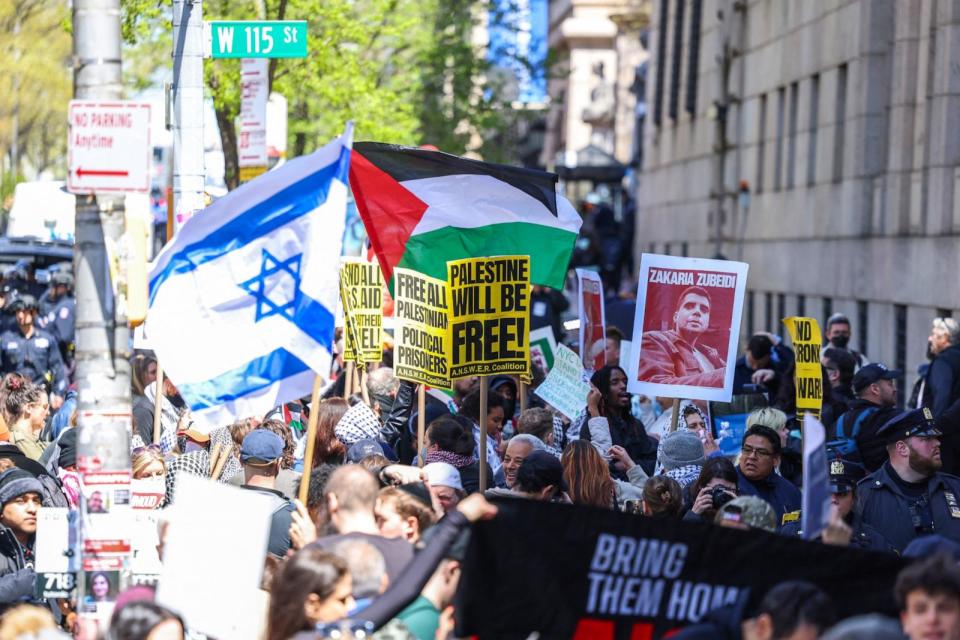
This spring, protesters at college campuses have demanded their institutions divest themselves from any ties to Israel for its response to the Oct. 7 Hamas attacks, which claimed 1,200 Israeli lives, according to Israeli officials. More than 34,000 Palestinians have died, according to the Hamas-run health ministry in Gaza.
Looking to continue the protests into the summer, some of the same groups are targeting the DNC when more than 5,000 Democratic Party delegates will descend on Chicago.
At a news conference in April, leaders of the Democratic National Convention Committee downplayed the prospect of protests derailing the convention.
"We're trying to create an environment where everyone is welcome. We do protect First Amendment rights. But we also want to reassure you that the people are excited about this convention coming," DNCC Chair Minyon Moore said.
"[The Secret Service is] doing all the right things to protect the citizens of Chicago, but we're also doing -- we hope to do the right things to protect the protesters," Moore said.
The protest groups claim their free speech rights are being violated.
Last week, March on DNC filed for an injunction against the city of Chicago, arguing officials improperly denied issuing permits to hold a pair of protest marches within blocks of the DNC.
Instead of allowing protests "within sight and sound" of the DNC, the group said, the city has instead offered an alternative location four miles away. Abudayyeh of March on DNC argues that the distance keeps them "buried," and that the groups will march "whether they have permits or not."
MORE: How campus protests of the past may inform pro-Palestinian student demonstrations
In a statement to ABC News, the city argued it does not have enough resources to handle the kind of protests the groups want to carry out.
"The City of Chicago has received parade or assembly permit applications from seven groups coinciding with the DNC. All seven permits were denied following review by multiple City departments to identify any potential conflicts, safety issues, and to assess the availability of resources needed to support the gathering," Director of Public Information for Chicago's Department of Transportation Erica Schroeder said in a statement to ABC News.
Nevertheless, Chicago Police Department Superintendent Larry Snelling assured residents that police are properly trained in "anticipation of large demonstrations."
DNCC Chair Moore told reporters they are "very sensitive to the environment that we're walking into here in Chicago," adding that the committee is coordinating "very closely" with the Secret Service, as well as the mayor's office and the Chicago Police Department.
"We have read the stories, we have seen the stories and we have heard the stories. And we know that protesters are coming. Protesters come every four years," she said.
Avoiding 1968 redux
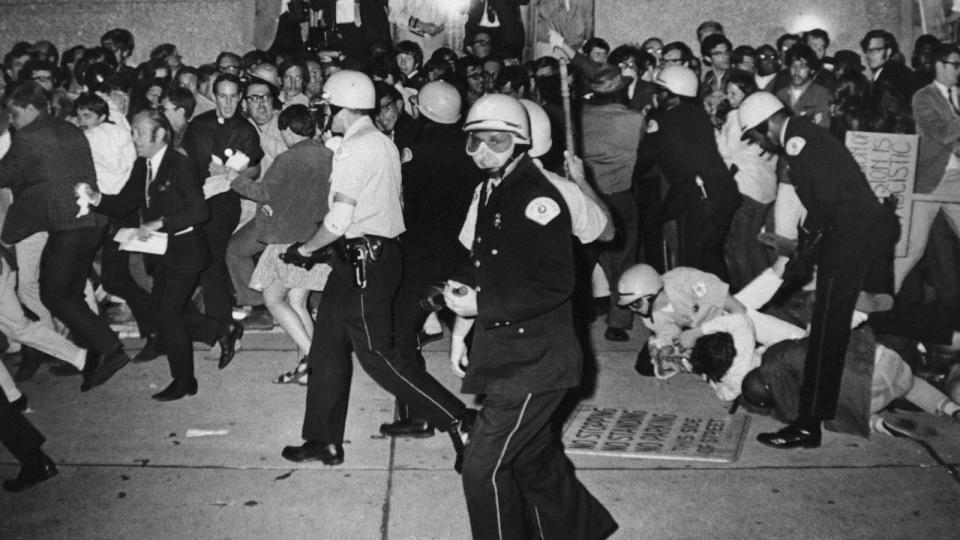
American University professor Leonard Steinhorn said while there are common threads between now and 1968, there are some clear differences, most notably the American death toll in Vietnam -- where more than 58,000 American service members were killed.
"??It's hitting any neighborhood where you have relatives who are living in a dystopian, horrific, brutalized moment. It's hitting people in that sense, but it's not hitting people because their kids are going off to war in this country," he said.
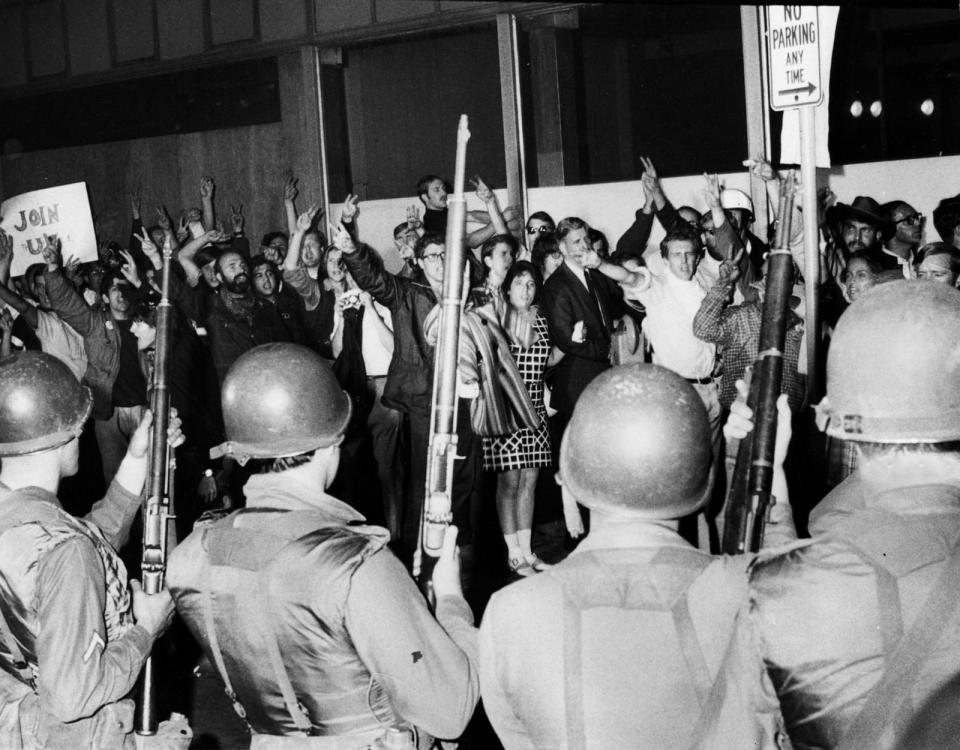
At the convention in 1968, the city of Chicago refused permits to the National Mobilization Committee to End the War in Vietnam and the Youth International Party, denying them a designated space to peacefully protest.
The groups weren't legally able to protest near the convention, which led to a clash between protesters and Chicago Mayor Richard Daley's police force. Authorities said 668 protesters were arrested; 110 hospitalized; 425 were treated at temporary hospitals.
The Walker Report, commissioned by President Johnson to look into the violence, called it a "police riot," with many officers using billy clubs, rifle butts, mace and tear gas on the protesters. National Guard troops were called out. The report detailed that the "vast majority of the demonstrators were intent on expressing by peaceful means their dissent."
MORE: 'Violent protest is not protected,' Biden says of college campus unrest
Former Republican President Richard Nixon tried to harness the unrest to activate what he called the "silent majority," and won a decisive White House victory.
The aftermath of 1968 still looms large over the Democratic Party.
Former President Donald Trump has tried to take advantage. In an interview with a local station in Wisconsin, Trump warned that the Democrats will have a "problem" in Chicago because "they've handled things very poorly."
Steinhorn, the American University professor, surmised that moving the protests this year to a separate location makes logistical sense, but that the city of Chicago must learn from its past "mistake."
"There's sort of a political strategy behind that, which is, where are the cameras going to be? The more you can isolate it and make it a sidebar story that's more helpful," said Steinhorn. "But it's a mistake when you look at the history. If you don't allow peaceful protest and a space to organize, things can get out of control."
Democrats work to keep protests from disrupting Chicago convention, with concerns over parallels to 1968 originally appeared on abcnews.go.com
